
April 24, 2024
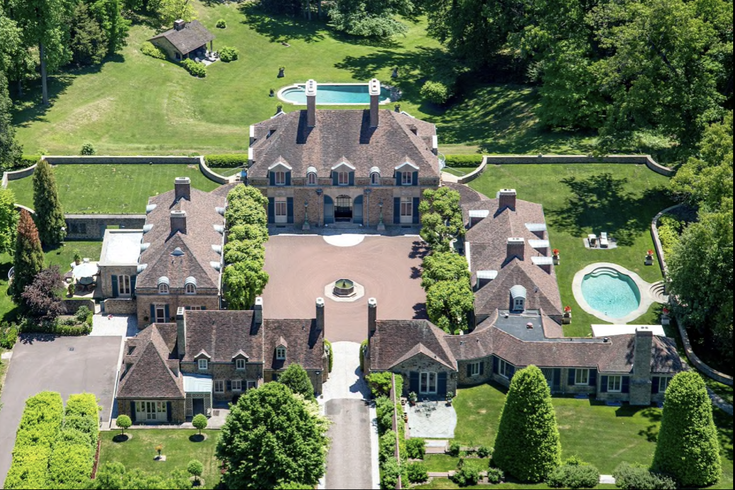 Provided Image/Interluxe Auctions
Provided Image/Interluxe Auctions
The Linden Hill Estate and Linden Court in Gladwyne, Montgomery County, will be auctioned online in May.
A sprawling Gladwyne estate once owned by the heirs of the chemist who perfected condensed soup — helping turn Campbell Soup Co. into a household name — has been listed to be sold at auction next month.
The Linden Hill Estate and Linden Court off Monk Road cover 26.3 acres and multiple residences, including the centerpiece stone mansion in the French Norman architectural style. The property is being auctioned by Interluxe on behalf of venture capitalist Robert Burch, of New York-based Redbadge.
The property was built by architect Edmund G. Gilchrist between 1928 and 1931 and was originally occupied by stockbroker Rodman Ellison Griscom. It was later purchased in the 1950s by the heirs of chemist John T. Dorrance, who was the president of Camden's Campbell Soup Co. (then called the Joseph Campbell Preserve Co., after its founder) around the turn of the 20th century. Dorrance's innovations led to the wider commercialization of canned soup, which he made more affordable and easier to package by reducing water weight.
The Dorrance family lived at the estate until the 1990s, when it was sold to another owner. Burch purchased the estate in 1998 and raised his family there. The Main Line property is about 25 minutes from Center City.
At one point prior to the COVID-19 pandemic, Burch hoped to redevelop the estate into a residential community or a retirement home that would preserve its distinctive charm. Zoning challenges and community resistence in Lower Merion Township, which contains Gladwyne, kept those plans from moving forward.
The online auction for the property, which will be held from May 20-21, enables bids on both the Linden Hill Estate and Linden Court as well as both parcels for a combined purchase.
The estate sits in a secluded area beyond fenced pastures and stone outbuildings that were designed to recall French villages. The main property covers more than 13 acres with an eight-bedroom mansion that has eight full bathrooms, four half bathrooms and a two-bedroom guest house. The grounds have two pools, tennis courts and decorative gardens. The interior of the 14,467-square-foot mansion has original floors, restored millwork, high ceilings and access to multiple terraces.
The adjacent Linden Court sits on over 12 acres and includes two stone houses, a primary home with four bedrooms and two bathrooms, and a guest house with another two bedrooms and two bathrooms. The grounds feature gardens and open land with stone walls that divide it into sections. It has a 10-car garage, a woodwork shop and a barn all with cedar shake roofs, in addition to a maintenance building.
The pool outside the Linden Hill Estate mansion is shown above.
A photo shows an exterior view of the main mansion at Linden Hill Estate.
The main bedroom of the Linden Hill Estate mansion is shown above.
The living room inside the primary residence at Linden Court is shown above.
Additional rooms across both properties can be used for offices, playrooms or more bedrooms.
The entire property and its parts have been on the market at various points over the years, sometimes listing for as high as $24.5 million for both parcels, Mansion Global reported.
The starting bid for the Linden Hill Estate will be $2 million and the starting bid for Linden Hill Court will be $1.5 million. A $100,000 bidding deposit is required.
Burch will hope to fare better on his investment than Andrew Barroway, the hedge fund manager and minority owner of the NHL's Arizona Coyotes, who sold his six-bedroom Gladwyne mansion at a steep loss two years ago. Barroway spent a combined $35 million on land and the construction of his Gothic-style dream home in the mid-2000s, only to sell it for $9.26 million after multiple price drops and a failed auction.
Dorrance's method for condensing soup earned Campbell Soup Co. a gold medal at the 1900 Exposition Universelle in Paris, which is why the familiar soup cans feature an illustration of the award. He became the company's president in 1914 and bought it out from the Campbell family, remaining at the helm until his death in Camden in 1930. Dorrance also was responsible for the classic red-and-white design of the company's soup cans.
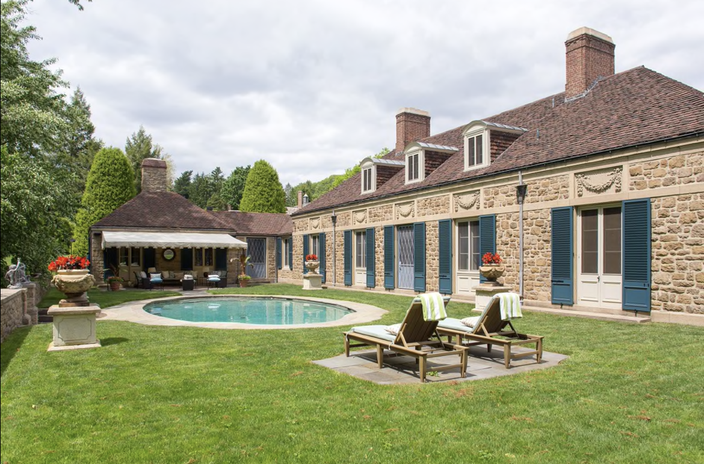 Provided Image/Interluxe Auctions
Provided Image/Interluxe Auctions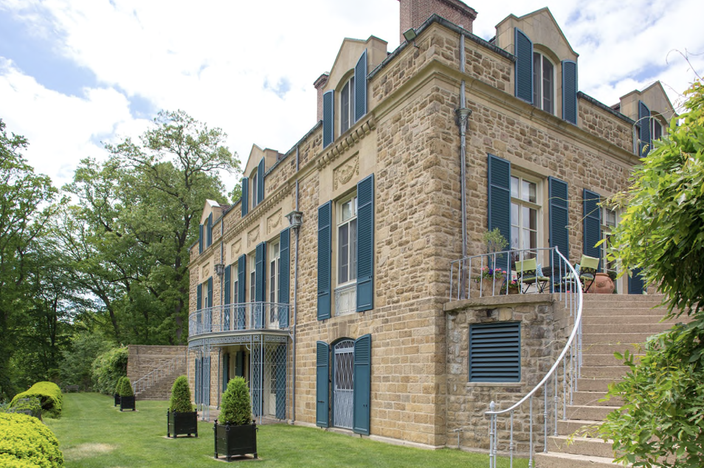 Provided Image/Interluxe Auctions
Provided Image/Interluxe Auctions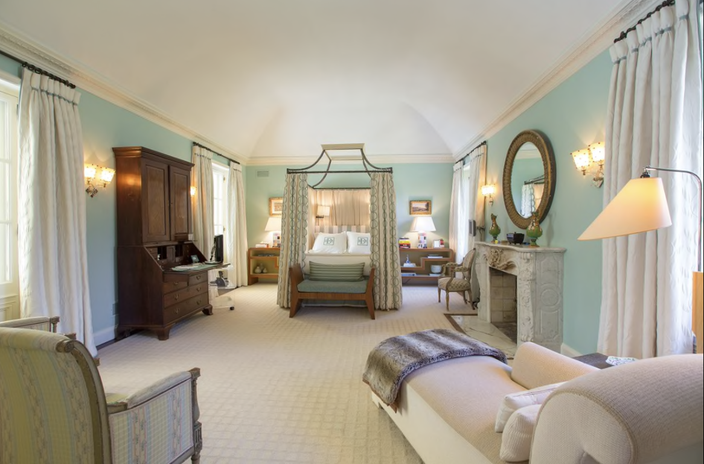 Provided Image/Interluxe
Provided Image/Interluxe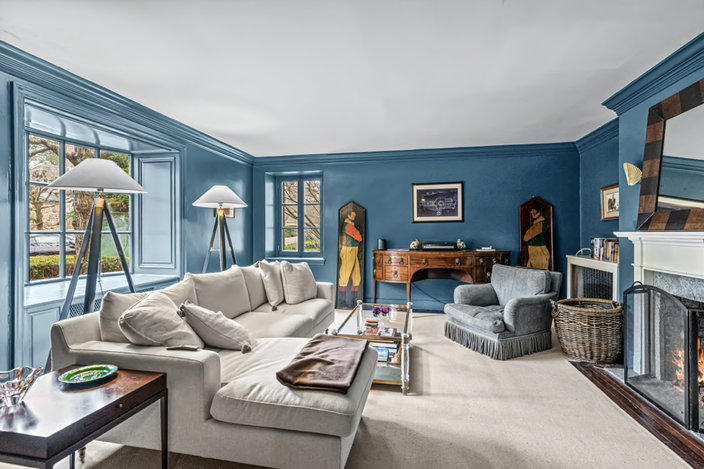 Provided Image/Interluxe Auctions
Provided Image/Interluxe Auctions